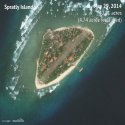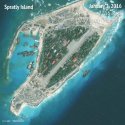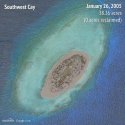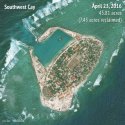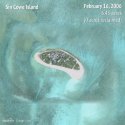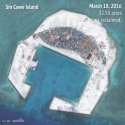For more than a decade, a mysterious explosion at the Evergreen Hotel in Davao City has been a footnote in the long, checkered history between the Philippines and the United States. But among those who never let it go was the city’s mayor, Rodrigo Duterte — who is now poised to become the Philippines’ new president.
In an interview last year before he announced his candidacy, Duterte went so far as to acknowledge “hatred” for the United States stemming from the obscure episode, when an American named Michael Terrence Meiring was charged with possession of explosives but managed to flee the Philippines.
Meiring called himself a treasure hunter and joked about being with the CIA, meaning “Christ in Action.” He told the hotel staff not to touch a metal box in his room, apparently with good reason. On May 16, 2002, the box exploded, mangling his legs and damaging the hotel.
But three days later, despite severe injuries and the charges against him, Meiring vanished from his hospital room. Philippine officials later said that men waving FBI badges had taken him in the dark of night and flown him out of the country without their permission.
Duterte expressed outrage that the United States would help a criminal suspect leave the country without regard to Philippine law. He also fanned speculation that Meiring was involved in covert operations conducted by the United States in the Philippines.
Fourteen years later and scheduled to be sworn in as president on June 30, Duterte is still angry.
Last month, he threatened to cut ties with Washington in response to critical comments from the US ambassador to the Philippines, Philip Goldberg. “Go ahead and sever it,” Duterte snapped, referring to diplomatic relations. His spokesman, Peter Laviña, explained that Duterte’s hostility originated with the Meiring case.
“Mayor Duterte has his own personal experience in Davao,” Laviña said in a television interview. “We were able to capture a bomber, a suspect in the bombing in Davao. He was an American. He was spirited away by the US embassy. I think that’s when the bad relations started.”
The Philippines has long been the United States’ closest ally in Southeast Asia. The two nations have a mutual defense pact, and the Philippines recently agreed to allow the Pentagon to station troops and weapons at bases in the country. For more than a decade, US forces have also trained and advised Philippine soldiers hunting the Abu Sayyaf, a gang of rebel kidnappers operating in the southern islands that recently swore allegiance to the Islamic State.
Davao City is the most populous city in the south, and a pair of bombings there killed 38 people in 2003. But Duterte, its mayor for the past 20 years, has long expressed skepticism about US military presence. In 2013, he said he had blocked a US proposal to base drones at Davao City’s old airport, citing his concerns about the Meiring case.
“I do not want it,” he was quoted saying in local news media. “I do not want trouble and killings. They will only add to the problem.”
Aides to Duterte did not respond to requests for comment. But in the interview in which he discussed the case last year, Duterte said that his “hatred” for the United States was a “personal” sentiment that he could set aside in the national interest. He also said, though, that his anger over the Meiring case had not diminished.
A spokesman for the US embassy, Kurt Hoyer, said it would have no comment on the drone proposal, the Meiring affair, or how the episode might affect relations with the incoming president. He said an embassy press statement in 2002 was the final word on the case, but was unable to provide it.
In the statement, according to published reports, the embassy acknowledged that FBI agents went to the Evergreen Hotel to investigate the explosion but “categorically” denied that the agency “had any role in Mr. Meiring’s departure.”
The Meiring affair has long been the subject of conspiracy theories in the Philippines. Much remains unexplained, including why there were explosives in Meiring’s room and who mounted the operation that helped him escape.
“Why should the US take him out of the country? That’s the puzzle,” said a former high-ranking Philippine intelligence official who declined to be identified because he was not directly involved in the case.
According to news reports, Meiring had been going to Davao City for many years, usually staying in the same suite at the Evergreen. He had documents allowing him to hunt for treasure – which was believed to have been left by occupying Japanese forces during World War II – and an identity card allowing him to travel in territory held by separatist Islamic rebels.
At the time, the southern Philippines was plagued by armed conflict with the rebels and occasional bombings, including a blast a month earlier that killed 15 people in the city of General Santos, about 90 miles south of Davao City.
When the police first questioned Meiring about the explosion at the Evergreen, he said someone had thrown a grenade into his room. But investigators quickly found conclusive evidence that the blast was caused by explosives in his room, according to the police file, including the remains of two 6-volt batteries, an electric blasting cap, and a circuit board.
Doctors amputated one of Meiring’s legs, but he was taken from the hospital and flown from Davao by charter plane, the police said at the time. He received medical treatment in Manila and left the country soon after.
Witnesses said that the men who took him from the hospital displayed FBI badges. The hospital’s owner told reporters that he agreed to release Meiring despite his injuries after US officials promised to issue a work visa for his daughter, a nurse.

